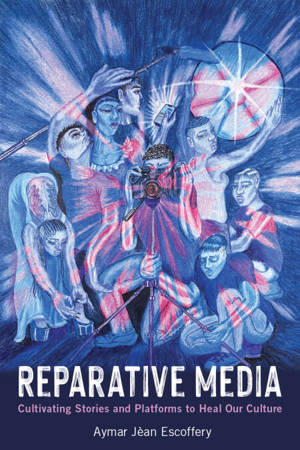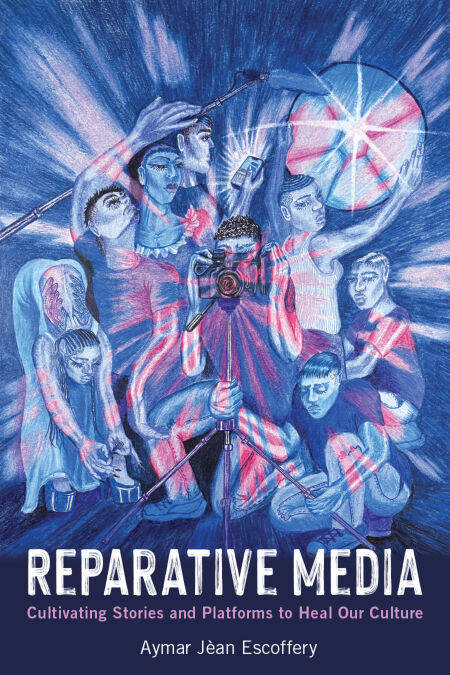
Bedankt voor het vertrouwen het afgelopen jaar! Om jou te bedanken bieden we GRATIS verzending (in België) aan op alles gedurende de hele maand januari.
- Afhalen na 1 uur in een winkel met voorraad
- In januari gratis thuislevering in België
- Ruim aanbod met 7 miljoen producten
Bedankt voor het vertrouwen het afgelopen jaar! Om jou te bedanken bieden we GRATIS verzending (in België) aan op alles gedurende de hele maand januari.
- Afhalen na 1 uur in een winkel met voorraad
- In januari gratis thuislevering in België
- Ruim aanbod met 7 miljoen producten
Zoeken
€ 44,35
+ 44 punten
Omschrijving
How to repair our culture by reimagining how we make media and use technology to connect with one another.
Can producing stories and developing platforms to support people who have been harmed by multiple, intersecting systems heal those systems? In Reparative Media, Aymar Jèan Escoffery argues that this is exactly how we repair our culture and heal harms from racism, sexism, classism, homophobia, transphobia, ableism, and religious discrimination: by reconsidering how we make media, how we connect through technology, and how we generate knowledge.
Based on five years of deep, complex work cocreating an independent alternative to platforms like Netflix and YouTube, the author reveals the process behind developing OTV | Open Television to stream stories by diverse creators. The book shows that planting seeds for a more community-based media and tech ecosystem can also reform corporate systems better than so-called diversity, equity, and inclusion (DEI) programs, as the platform helped elevate creators on social media and in Hollywood at companies like HBO, Netflix, and more. Combining theory and practice, local production and global distribution, Chicago and Hollywood, the book paints a portrait of what a healing media ecosystem looks like—and shows how communal ways of knowing can cultivate reparative media, technology, and research that benefit everyone no matter how they identify.
Can producing stories and developing platforms to support people who have been harmed by multiple, intersecting systems heal those systems? In Reparative Media, Aymar Jèan Escoffery argues that this is exactly how we repair our culture and heal harms from racism, sexism, classism, homophobia, transphobia, ableism, and religious discrimination: by reconsidering how we make media, how we connect through technology, and how we generate knowledge.
Based on five years of deep, complex work cocreating an independent alternative to platforms like Netflix and YouTube, the author reveals the process behind developing OTV | Open Television to stream stories by diverse creators. The book shows that planting seeds for a more community-based media and tech ecosystem can also reform corporate systems better than so-called diversity, equity, and inclusion (DEI) programs, as the platform helped elevate creators on social media and in Hollywood at companies like HBO, Netflix, and more. Combining theory and practice, local production and global distribution, Chicago and Hollywood, the book paints a portrait of what a healing media ecosystem looks like—and shows how communal ways of knowing can cultivate reparative media, technology, and research that benefit everyone no matter how they identify.
Specificaties
Betrokkenen
- Auteur(s):
- Uitgeverij:
Inhoud
- Aantal bladzijden:
- 312
- Taal:
- Engels
- Reeks:
Eigenschappen
- Productcode (EAN):
- 9780262384643
- Verschijningsdatum:
- 15/06/2026
- Uitvoering:
- E-book
- Beveiligd met:
- Adobe DRM
- Formaat:
- ePub

Alleen bij Standaard Boekhandel
+ 44 punten op je klantenkaart van Standaard Boekhandel
Beoordelingen
We publiceren alleen reviews die voldoen aan de voorwaarden voor reviews. Bekijk onze voorwaarden voor reviews.









